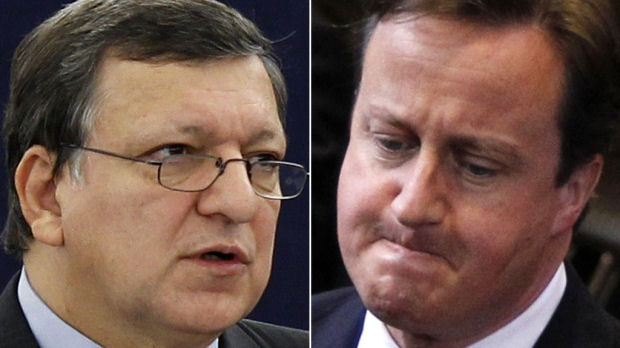Barroso says UK made compromise impossible
European Commission President Jose Manuel Barroso criticises the UK’s approach to negotiations at last week’s Brussels summit, saying British demands risked compromising the internal market.

In comments which suggested his exasperation with David Cameron’s tactics, he said Britain’s demands represented a “risk to the integrity of the internal market” which other member states could not accept.
Mr Barroso insisted that the prime minister’s decision to deploy the UK’s veto to block treaty change did not amount to a “split” between the 17 euro states and the remaining 10 members of the EU.
He told MEPs that he, European Council President Herman Van Rompuy, and Euro Group President Jean-Claude Juncker had put forward a proposal last Thursday for treaty change to introduce new fiscal discipline, which would have applied only to the eurozone but required the approval of all 27 EU members.
The UK asked for a specific protocol on financial services which was a risk to the integrity of the internal market. This made compromise impossible. Jose Manuel Barroso
“As you know, one member state was opposed to amending the Lisbon treaty,” he said. “The United Kingdom, in exchange for giving its agreement, asked for a specific protocol on financial services which, as presented, was a risk to the ingegrity of the internal market. This made compromise impossible,” Mr Barroso said.
The commission president was addressing the European Parliament in Strasbourg as Conservative and Liberal Democrat members of the coalition cabinet met face to face for the first time to discuss the aftermath of events at the end of last week.
Yesterday the deputy prime minister, Nick Clegg, failed to attend the Commons as David Cameron defended his decision to wield the veto. Mr Clegg justified his absence by saying he would otherwise have become a “distraction”.
Mr Clegg’s failure to attend the Commons prompted an accusation of “cowardice” from one Conservative MP.




